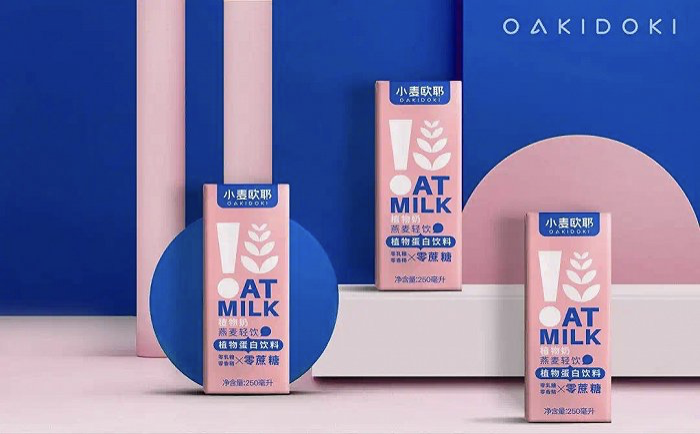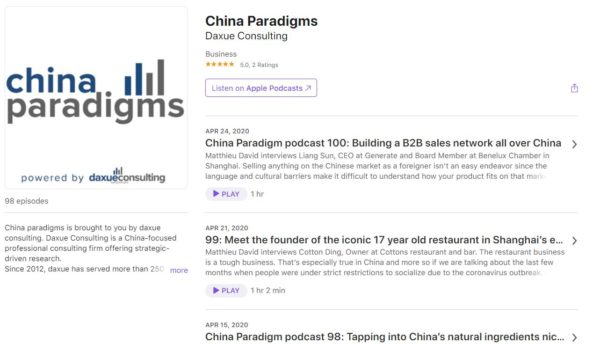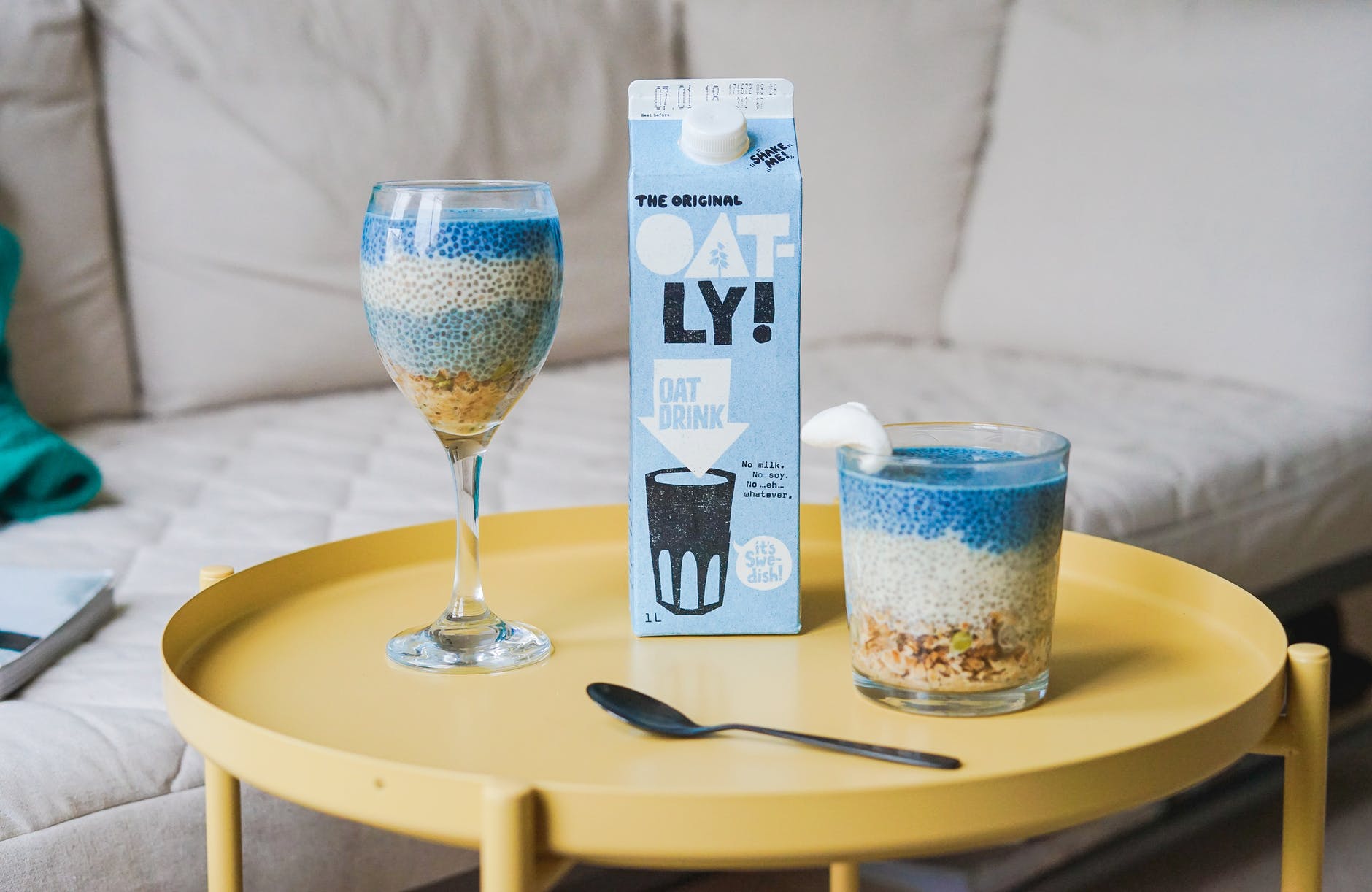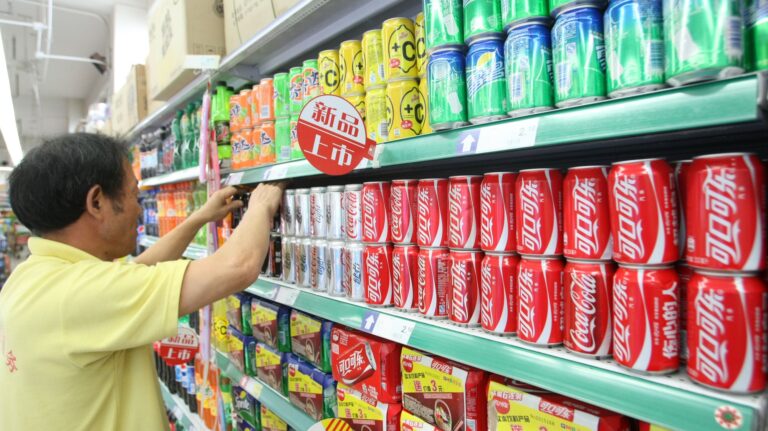Allied Market Research published a report indicating the global oat milk market amounted to $360.5 million in 2019, and is projected to generate $995.3 million by 2027: a CAGR of 13.4% from 2021 to 2027. According to Huaon, the plant-based milk market in China was 53.69 billion RMB in size in 2019 with 87.84 million liters sold, a year-on-year increase of 6.14%. Oat milk is a newer member of China’s plant-based milk market, but it is one to keep an eye on. How does the oat market in China fair amid the COVID pandemic?
Oat milk consumption in China
While browsing coffee shops in China, it is impossible to ignore the prominent position of the high-protein drink in the Chinese market. Coffee shops in Shanghai proudly display branded ‘Oatly’ signs at their order counter. In fact, coffee shops have been key to spreading the popularity of the Swedish brand Oatly in China. While the globally famous brand now competes with local Chinese oat milk brands, it is largely responsible for introducing the concept of oat milk to the Chinese market after its 2016 market entry.
Since then, Oat milk consumption has been booming in China. According to a comparative study, 92% of adults in China have trouble digesting lactose, spawning the opportunity for a striving plant-based beverage market in the middle kingdom.
According to a report published by Tmall, the oat milk market in China was expected to surge by 800% in 2020 on the platform. Moreover, 15.5% of growth in the beverage market this year was attributed to plant-based drinks.
According to Euromonitor International, the plant-based beverage market in China is expected to grow 2.7% per year on average from 2019 to 2024.
Local startups vs. international leaders compete in the oat milk market in China
The Swedish brand Oatly has already solidified its position in the Chinese market, with its product available across 10,000 coffeeshops in the country. Oatly can also be purchased through the Tmall flagship store of the brand.
Oatly entered the Chinese market by forming a joint venture with its Chinese partner China Resources Corporation (CRC). The Swedish brand strategy was to focus on the rising coffee shop market in China by introducing oat milk as a healthy sweetener for Chinese coffee goers. Distributing its’ brand through CRC’s coffee shop chain Pacific Coffee and premium supermarket chain Ole, Oatly rapidly won over Chinese consumers. Oatly also multiplied collaborations with famous Chinese tea brands and local coffee shops to reinforce its’ brand awareness. Although it initially focused on Shanghai, Oatly now distributes its products all over China.
As Oatly gained momentum, local players have followed suit. Chinese startup Oakidoki raised 10 million RMB ($1.53 million) in September 2020 to expand their presence in the local oat milk market. The founder of Oakidoki, Wang Xin, reported on Jiemian that sales tripled three months after the firm made its product available on Tmall, in July. The company is projecting more than 100 million RMB in yearly revenues by 2021.

Source: Oakidoki, a Chinese oat milk brand
Yet, Oakidoki is not much cheaper. 1 litre of the startup’s beverage costs 39.5 RMB on Tmall, only 5% cheaper than Oatly (42 RMB). Other local companies such as OatOat chose to price more aggressively, around 30 RMB per litre (30% cheaper than Oatly). In December 2020, the Chinese dairy giant Yili announced the launch of two new oat milk and plant-based yoghurt prodcuts in 2021. Benefiting from strong distribution channels both online and in retail stores, the group could prove to be a strong new competitor.

Source: Sohu. Yili announced two new oat-based yoghurts in 2021 for its’ plant-based drinks brand Zhixuan
Impact of COVID-19 on Oat Milk consumption in China
Oat Milk has benefited from its positioning as a healthy alternative, at a time when many customers are trying to live a more wholesome lifestyle. According to a study by Nielsen, global oat milk sales skyrocketed amid the pandemic, seeing a 212% increase between October 2019 and October 2020.
“We saw a flock of consumers interested in Oat Milk as an alternative to traditional dairy after COVID hit” says Kevin Liu, COO at Plantmello, an “affordable vegan beverages” company “people are confident in the ability of oat milk to strengthen the immune system – moreover, consumers are also increasingly suspicious of the whole animal breeding system as a potential source of future viruses. This has all fuelled the growth of the plant-based beverages market.”
According to Ben Rutten, global business manager milk at DSM, 44% of Oat Milk customers expect oat milk beverages to be fortified with nutrients. “At a certain point” says Ben “we believe [fortification of plant based beverages] will become an imperative”.
Mike Messersmith, president for North America at Oatly, also thinks that oats have an edge given their high fiber content, and the lowest risk of allergies compared to other plant-based beverages such as soy milk or almond milk.
Learn something new? Stay updated on the Chinese market by following our WeChat, scan the QR code below, or subscribe to our newsletter

Listen to over 100 China entrepreneur stories on China Paradigms, the China business podcast
Listen to China Paradigm on Apple Podcast






